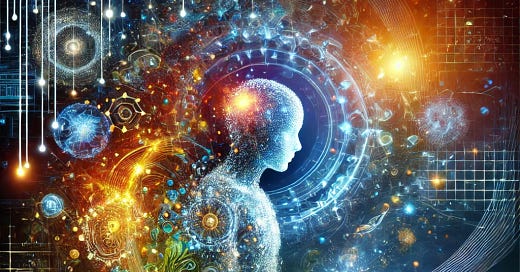Authenticity in the AI Era: Navigating Perfectionism and Detection Bias
The Growing Credibility Crisis and How Writers Can Push Back
Writers and creatives today face a paradox: striving for excellence often leads to suspicion, thanks to flawed AI detection tools. This article explores real-world stories, the impact of these tools, and actionable steps for navigating the challenges of authenticity in an increasingly automated world.
In a world increasingly influenced by AI and automation, writers, students, freelancers, and even seasoned professionals face a frustrating paradox: the harder they work, the more their effort is questioned. Tools like AI detectors, designed to distinguish machine-generated content, are inadvertently eroding trust in human creativity. This issue highlights broader challenges in education, professional work, and how we perceive authenticity in the AI age.
The Irony of AI Detection: Real Stories
Let’s start with Clara, a college student who spent hours crafting a deeply researched essay, only to face accusations of AI use. “I showed my Google Docs edit history,” she explained. “It was the only way to prove I wrote it.” The experience was draining but not unique.
On the other side of the classroom, teachers like Leo are under pressure to identify potential misuse of AI tools. “Detection software flags well-written work as suspicious all the time,” Leo shared. “It creates unnecessary stress for students and educators alike.”
Meanwhile, freelancers like Maya grapple with similar accusations. “A client once asked if I used ChatGPT for a blog post,” she recounted. “It was insulting. They couldn’t see the hours of brainstorming and revisions that went into it.” This growing mistrust highlights a troubling bias: when work seems too polished, it’s often doubted.
Balancing Perfectionism and Authenticity
The rise of AI detectors has also reframed how society views perfectionism. For freelancers, polished work, once celebrated, is now met with skepticism. This shift forces many to question their approach: should they aim for excellence if it risks being mistaken for machine output?
Jordan, a creative professional, offers perspective. “Perfectionism can drive excellence, but it’s a problem when it’s weaponized against you,” he said. “The key is balance, knowing when good is good enough and focusing on your goals over unattainable ideals.”
This balancing act isn’t easy. Clara admits, “It’s hard to let go of perfectionism when it feels like your work is constantly under scrutiny.” For many, the solution lies in transparency… sharing drafts, edit histories, and creative processes to rebuild trust.
Broader Implications: Education and Professional Life
The challenges posed by AI detection tools aren’t confined to individual experiences. Reports show these systems have wrongly flagged academic papers and even historical texts as AI-written. This raises critical questions about their reliability and impact.
Moreover, as Elon Musk’s xAI and other companies raise billions to advance AI capabilities, the stakes grow higher. The tools meant to accelerate creativity and discovery are also reshaping how we value human effort.
Lessons for Navigating the AI Era
Writers, educators, and professionals can take actionable steps to thrive in this evolving landscape:
Keep Evidence of Your Work: Use tools like Google Docs and Word’s version history to document your creative process. This transparency can protect your credibility.
Educate Your Audience: Whether it’s clients, teachers, or peers, explain your approach and methods to bridge the gap between effort and perception.
Embrace Balance: Strive for excellence but recognize when perfectionism becomes counterproductive. Focus on authenticity and value over unattainable ideals.
Advocate for Fair Practices: Push for improvements in detection tools and systems that respect human creativity without defaulting to mistrust.
The Call for Authenticity
As AI continues to blur the lines between human and machine-generated work, the need for fair evaluation systems becomes more urgent. Students like Clara and freelancers like Maya shouldn’t have to fight to prove their worth. It’s time to demand systems that value authenticity and human effort.
Thank you for taking the time to read this! Feel free to share your thoughts or experiences in the comments or reach out to discuss further. Let’s continue creating, adapting, and advocating for a future that celebrates human creativity.
Subscribe for More: I post weekly on news, introspection, and the evolving dynamics of creativity in the digital age. Engage with me, and I’ll do my best to return the favor!




